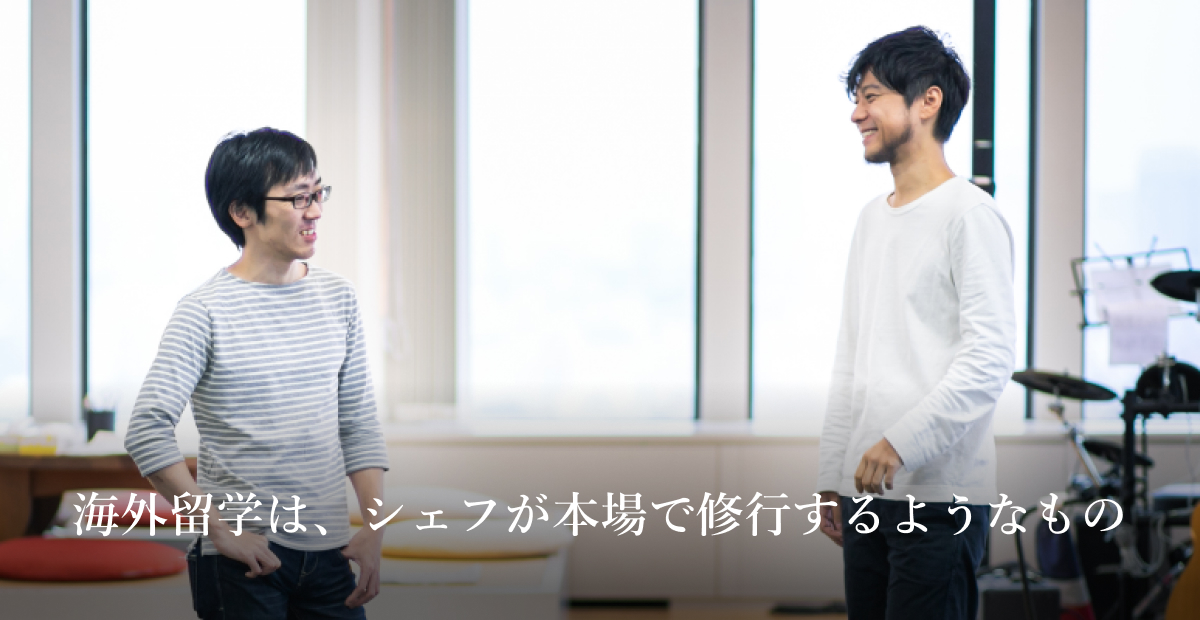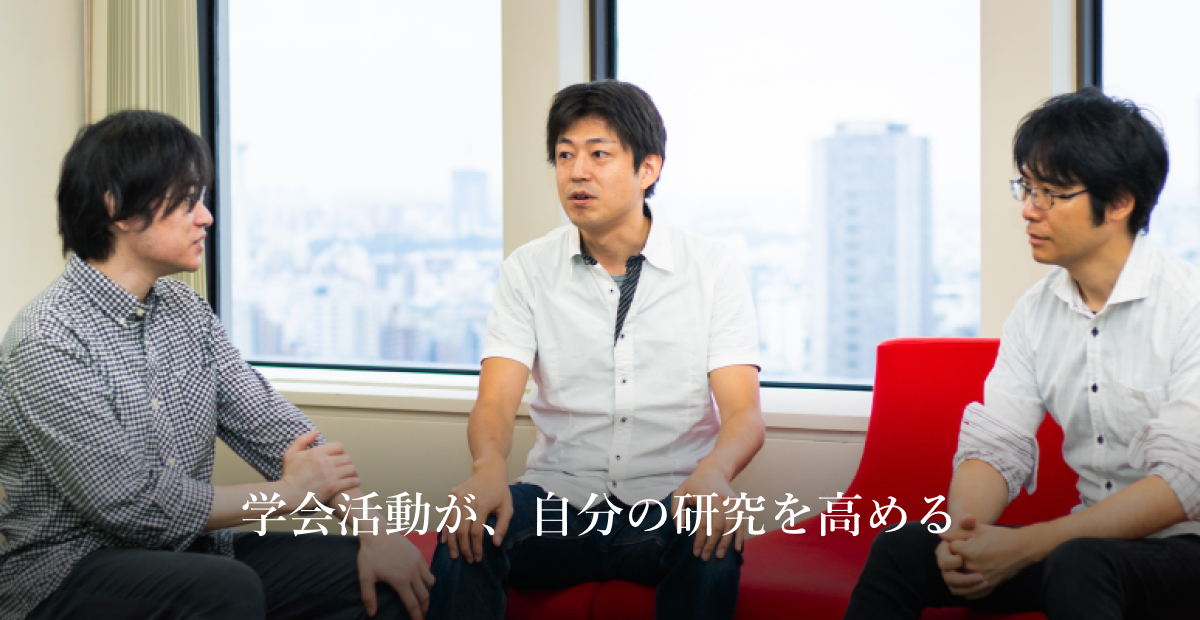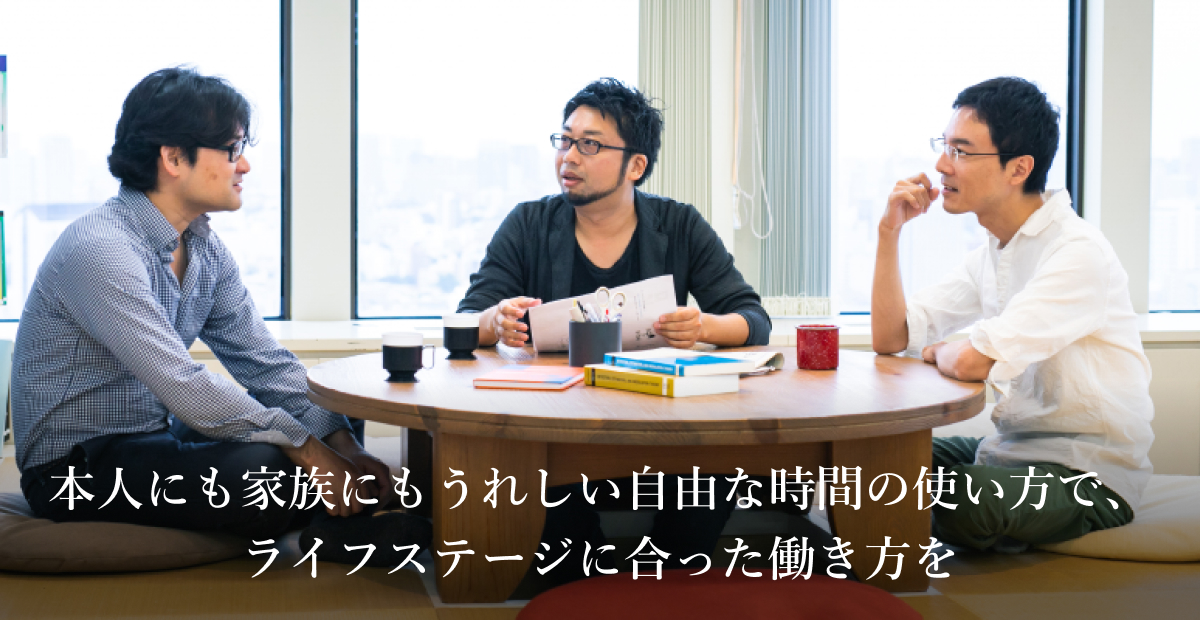Round-table discussion: “Company Environment and Programs”
A Focus on Facilitating Research
DENSO IT Laboratory (hereafter IT Lab) was established as a conscious effort to do things differently, and to create something different from DENSO. , For that purpose, the work environment offers a high degree of freedom, and the company has many experimental programs.
Participants
-
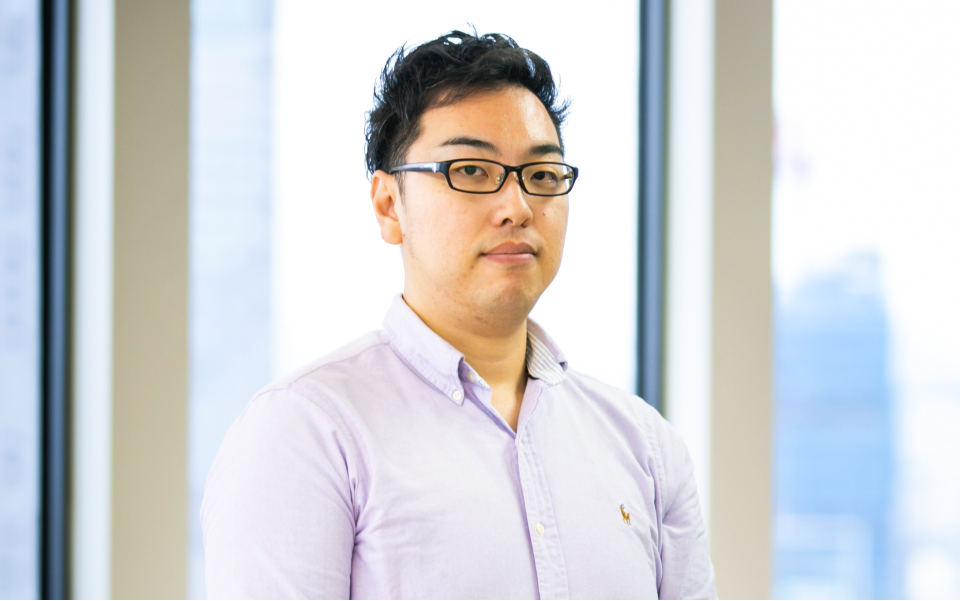 Shinichi Sumiyoshi
Shinichi Sumiyoshi
Research and Development Group
Researcher
Specializes in 3D measurement and recognition technology. Previously worked in computer vision research and development in the R&D division of an office equipment manufacturer; left in search of a company where he could focus more on research. Joined IT Lab in 2016. After researching 3D recognition technology for AR head mounted displays, he is now working on 3D measurement research. -
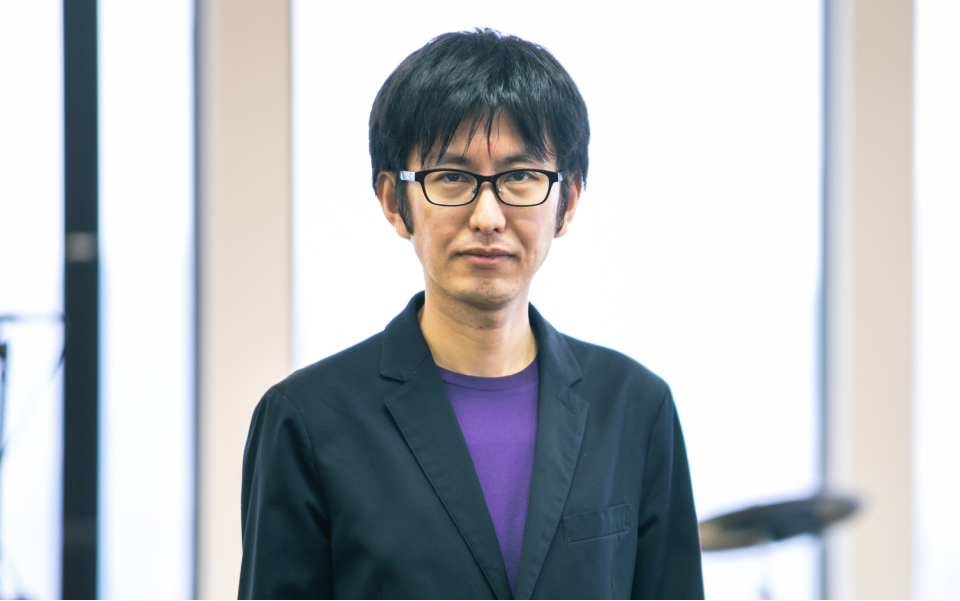 Yuichi Yoshida
Yuichi Yoshida
Research and Development Group
Senior Researcher
Previously worked in a research lab, and joined IT Lab in 2007 after considering whether to continue working in research, get involved in development, or work for a startup. Specializes in image search technology and research and development for mobile applications. Also has experience in sales, planning, and bringing products to market. His product concepts and licenses have been transferred to DENSO and other group companies. -
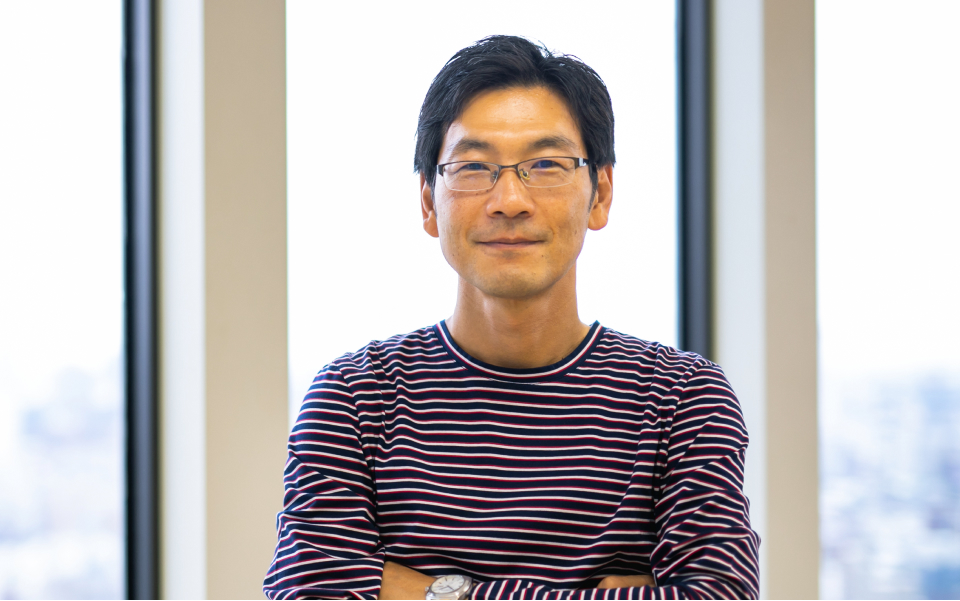 Hiroshi Doi
Hiroshi Doi
Research and Development Group
Manager, Senior Researcher
Worked on design and development of image recognition equipment for road infrastructure at an electronics manufacturer. Joined IT Lab in 2001 to get involved in research and development as well as algorithms, and worked on personalized restaurant recommendation algorithm development for next-generation navigation systems. As a manager, focuses on society’s needs, and works to bridge the gap between research and development and the business side.
The discretionary work system helps research and families
- Let me ask candidly: what are the good points of IT Lab’s environment and programs?
Sumiyoshi We can carry out our research in a discretionary work system that offers flexible schedules without core time. That’s one of the reasons I chose this company. Also, I think the Tokyo location is a plus, since it makes it easier to take part in study meetings held by universities and companies in the city.
Doi The company considers study meetings to be part of our work duties and encourages us to participate, as opposed to the “go on your own dime if you want to” attitude you see elsewhere. The discretionary work system lets me work at home in the morning when the kids are at home during the summer break, for example, and come in to the office after making lunch. The company offers PCs and a networking setup so we can work at home or elsewhere, too.
Yoshida A telework system was recently implemented so we can work from home up to five days a month for caregiving, taking care of sick family members, or child care as long as we put in a request in advance. Also, in addition to participating in study meetings, we can host our own study meetings during work hours. If we submit an application and host at least four sessions, it becomes an official study meeting and the company provides a social gathering budget to go drinking. I would hold study meetings even without the reward, but since they’re offering… (laughs). We can also buy as many books as we want as long as our manager approves, and we can attend academic conferences in Japan freely. For overseas conferences, if we’re presenting we can attend as many as we want as long as our manager approves. If we’re not presenting, we can still attend one conference per year. The company pays for the whole thing as a business trip, and even offers prize money if we receive an award at an academic conference.
Freedom in the environment and programs
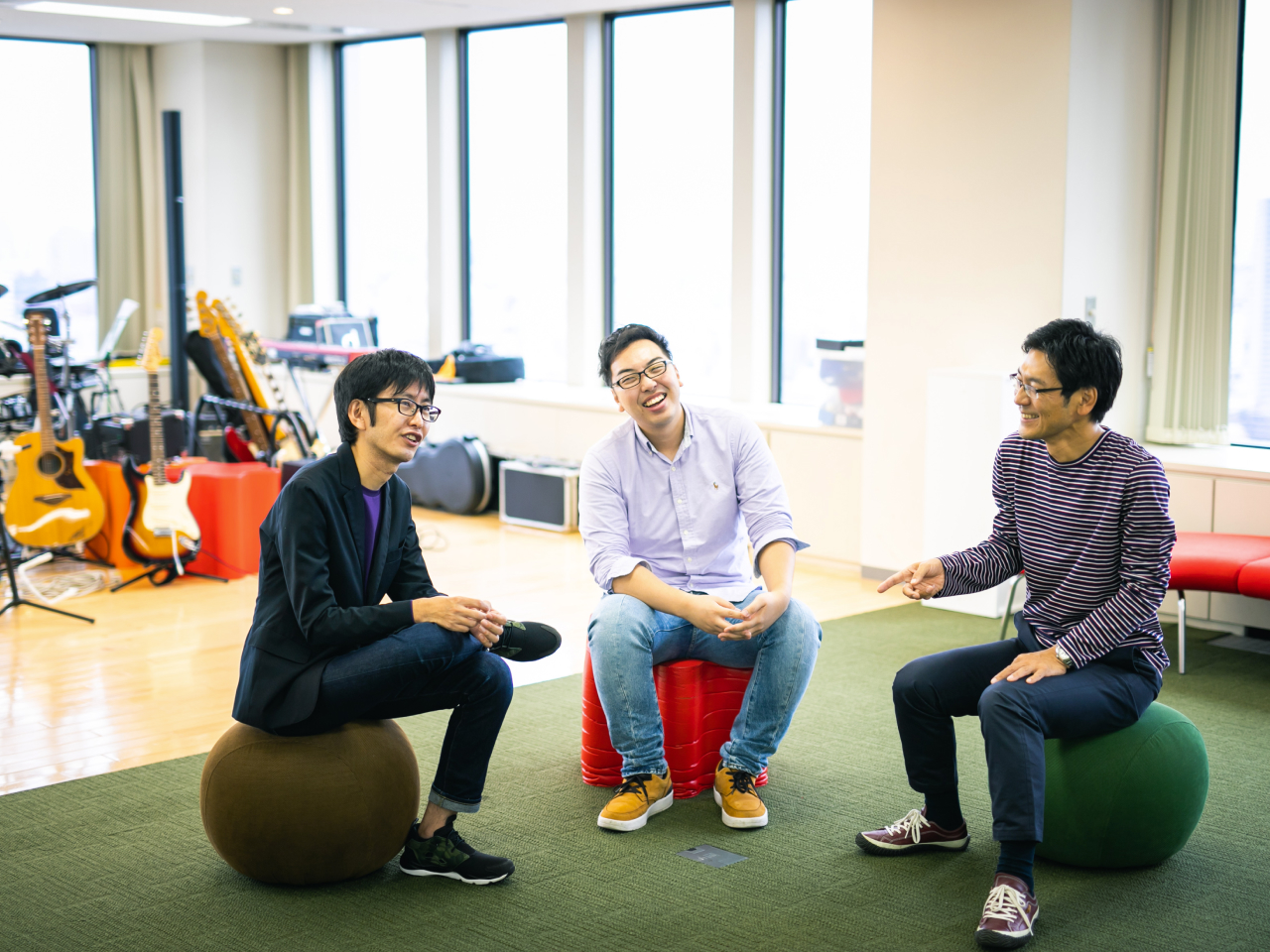
- I hear that freedom is a big part of the culture. What aspects or programs exemplify that?
Sumiyoshi I’m not really sure about drinking in the office (laughs).
Yoshida We actually have a program where we get together in the office in the late afternoon every Thursday to drink and talk about research. We call it a salon. We were getting together to drink before that, actually. We would go out drinking, and if we couldn’t find a place to with enough free seats to go next we would just come back to the office with beer from the convenience store. If we drink in the office, we don’t need to worry about anyone overhearing confidential information.
Doi Right. It’s a drinking party, but everyone would start writing on whiteboards and discussing research. Since we were doing that anyway, the salon program was started to create a place to talk about research while drinking.
Programs and systems follow

- Why do you think free and unique programs like this are created?
Doi Our programs and systems reflect what the employees want. If someone tries something and it works, a program is set up so others can benefit as well. And when we try something that hasn’t been done before, no one will step in to tell us not to do it.
Yoshida If something is necessary for research or results, we’ve always just done it whether there’s been a program or not. There have been times that led to something unexpected and we had to figure out how to fix it, though. (laughs) For example, we used to think that since we’re a research lab, we would never sell anything directly to another company. But there was a company that wanted to purchase an image search system we developed, and our management decided to be flexible and made arrangements, saying “We’re a research lab, so we can research business as well.” That resulted in the creation of a “test sales” program.
Requesting mentors and a culture of an open exchange of opinions
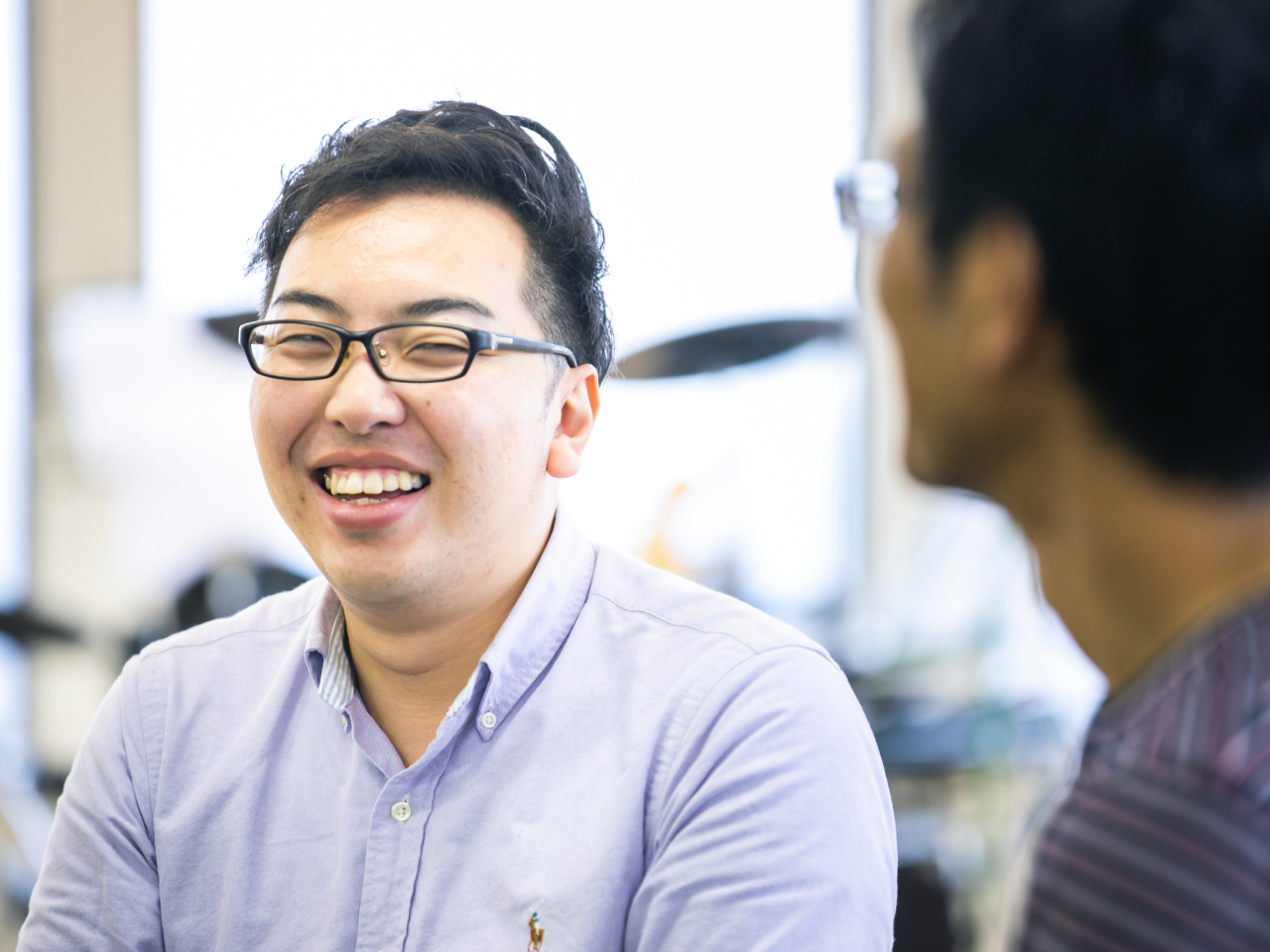
- I hear the mentoring program is a little different from those in other companies. For the three of you, Doi-san is Sumiyoshi-san’s manager, while Yoshida-san is on another team and is Sumiyoshi-san’s mentor, correct?
Sumiyoshi I asked Yoshida-san to be my mentor because he has been helping me with my research paper for the past year. He reviews my work carefully, and I’ve been asking him for advice about tasks other than the paper as well. I get advice about DENSO work not only from my manager, Doi-san, but from Yoshida-san as well.
Doi It’s not good if a brand-new employee can’t easily ask a more senior employee from another team to teach them something. We have a flat company structure, so we let our employees choose their own mentor without regard for organizational boundaries. We made it an official mentoring program so people won’t hesitate to ask, and to make things easier for both the mentor and the mentee. Mentoring is part of the mentor’s job duties, so as a manager I can ask for help without feeling bad about it. The mentee doesn’t need to hesitate about asking for help either. Talking to your mentor is different from talking to your direct boss, and work discussions are different from technical discussions. I think it makes things easier for researchers, and being able to get comments from outside the team is great, too.
Yoshida I didn’t realize all of that was behind the mentoring program. I’m checking the research paper on an ongoing basis, but everyone freely helps out like that whether they’re a mentor or not. When I write a paper, having everyone read it and offer their opinions is helpful, too. Because of that company culture, you see a lot of names in the author list for many of our research papers.
Good research comes from good discussions
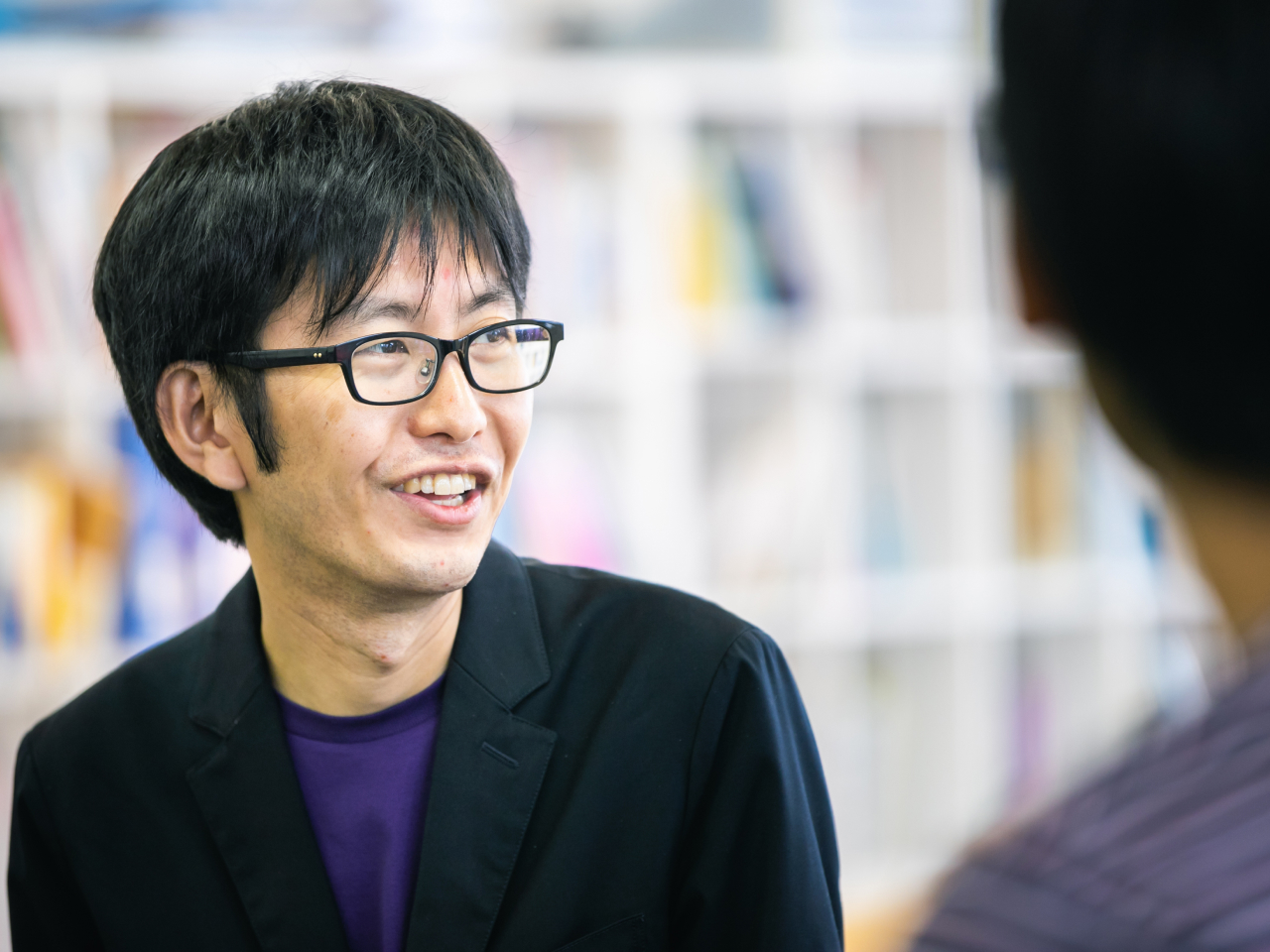
- To wrap up, I think the various programs were put in place to create an environment that’s conducive to research. What kind of environment have they created?
Sumiyoshi There’s open communication with other researchers. If I put together plans for a developers’ camp, lots of people participate. So it’s easy to share information, and it’s easy to create opportunities for people to share the skills that everyone wants to learn.
Yoshida The environment allows for discussion. And to keep improving, it’s important for colleagues to be able to challenge each other to keep growing. That drives our daily discussions and study meetings.
Doi If we take that and tie it back into the company’s programs, it leads to the question of how the work environment can create time for discussion. When things get busy, people don’t have time or they hesitate to take others’ time. The company and the managers need to continue thinking about the perfect programs to fit the current conditions as different people come and go, and the generations change. I’d like to see that lead to an environment that’s even more conducive to research, regardless of divisions between teams.
Yoshida I want to believe.
Doi That’s what we intend to do. (laughs)
- Sumiyoshi-san, Yoshida-san, Doi-san, thank you for your time.

